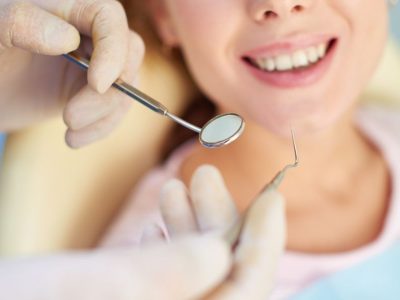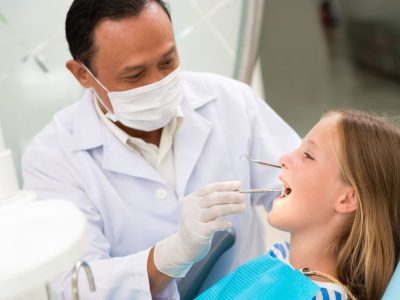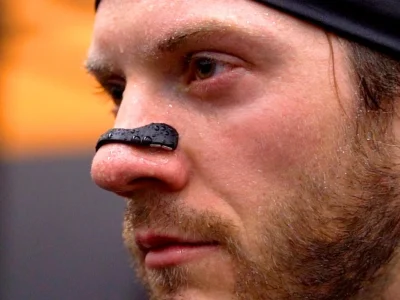Teeth grinding, also known as bruxism, is a common and often overlooked habit in children that can lead to a range of oral health issues if left unmanaged. According to the American Academy of Pediatric Dentistry (AAPD), approximately 30-40% of children grind their teeth, with the highest prevalence seen in children under the age of 6. If left untreated, teeth grinding can result in worn-down teeth, jaw pain, headaches, and even affect their overall quality of life. Fortunately, with early detection and effective management at the Oshawa dentist office, parents and caregivers can help their children break the habit of teeth grinding and prevent long-term damage.
This article will delve into the causes, symptoms, and management strategies for teeth grinding in children, providing valuable insights and practical tips for parents and caregivers to promote healthy oral habits and a happy smile.
What causes teeth grinding in children?
Here is a concise list of causes of teeth grinding in children:
- Stress and anxiety
- Misalignment of teeth
- Poor sleep habits
- Nutritional deficiencies (e.g., magnesium, calcium)
- Developmental stages (e.g., teething, growth spurts)
- Habit formation (e.g., thumb sucking, nail biting)
- Oral habits (e.g., tongue thrusting, lip biting)
- Neurological factors (e.g., ADHD, autism)
- Medication side effects (e.g., antidepressants)
- Family history of bruxism
- Trauma or pain (e.g., earaches, headaches)
- Sleep disorders (e.g., sleep apnea, restless leg syndrome)
What are the symptoms of teeth grinding in children?
Here is a concise list of teeth-grinding symptoms in children:
- Worn-down teeth
- Jaw pain or tenderness
- Headaches
- Earaches
- Clicking or popping jaw joints
- Sleep disturbances (e.g., insomnia, sleep talking)
- Teeth sensitivity
- Chipped or cracked teeth
- Gum recession
- Facial pain or tenderness
- Difficulty chewing or biting food
- Visible wear on teeth (e.g., flat spots, chips)
How is teeth grinding managed in children?
Management of teeth grinding in children involves a combination of behavioral changes, oral habits, and dental interventions. Here’s an elaboration:
Behavioral Changes
- Stress management: Teach relaxation techniques like deep breathing, meditation, or yoga.
- Establish a bedtime routine: Encourage a calming pre-sleep routine to reduce stress.
- Limit stimulating activities before bedtime: Avoid screens, exercise, or exciting games before bed.
Oral Habits
- Mouthguard: Custom-made mouthguards protect teeth from grinding damage.
- Orthodontic treatment: Address misaligned teeth to reduce grinding.
- Oral exercises: Gentle jaw stretches and massages can help relax the jaw.
Dental Interventions
- Regular dental check-ups: Monitor teeth grinding and adjust management as needed.
- Fluoride treatment: Strengthen teeth to reduce sensitivity and wear.
- Dental restoration: Repair chipped or worn teeth with fillings or crowns.
Additional Tips
- Encourage a balanced diet: Include foods rich in calcium and magnesium.
- Limit sugary and acidic foods/drinks: Reduce tooth decay and erosion.
- Monitor for sleep disorders: Address sleep apnea or restless leg syndrome.
- Consider a pediatric dentist: Specialized care for children’s unique needs.
Parental Involvement
- Observe and report: Note grinding habits and report to your child’s dentist.
- Encourage good habits: Support relaxation techniques and oral care.
- Be patient and consistent: Management may take time and effort.
In conclusion, teeth grinding in children is a common habit that can lead to various oral health issues if left unmanaged. However, with early detection and effective management, parents and caregivers can help their children break the habit and prevent long-term damage. By understanding the causes and symptoms of teeth grinding, and implementing behavioral changes, oral habits, and dental interventions, children can learn to manage this habit and develop healthy oral habits for life. With patience, consistency, and collaboration with pediatric dental professionals, parents can help their children overcome teeth grinding and maintain a happy, healthy smile. By taking proactive steps, we can empower children to develop good oral habits and prevent the negative consequences of teeth grinding, setting them up for a lifetime of optimal oral health and well-being.













Comments